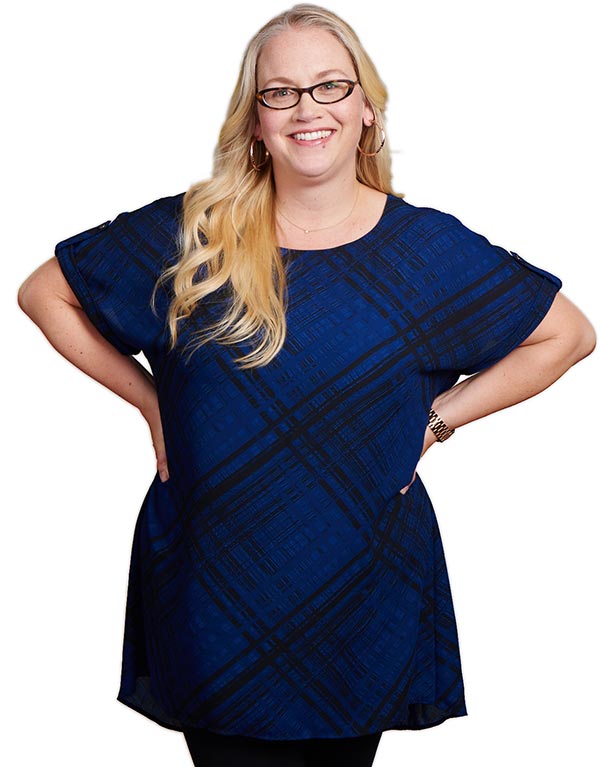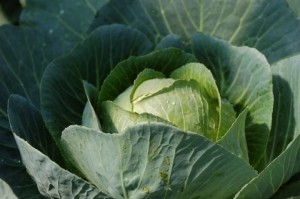A big thank you to Samantha for sharing her Real Story with us today. We don’t talk about anorexia a whole lot on HealthyGirl.org, but for many disordered eaters, starving and bingeing are really just two sides of the same coin. And many of them do both. I’m sure all of you will find something to relate to in Samantha’s story. xo…Sunny
My name is Samantha and I am a (slowly but surely) recovering anorexic food addict. Sound funny? Yeah, to me too.
It was around the 6th grade when I suddenly put down all sweets and “bad” food and decided to be a “healthy” eater. I would only eat foods that I deemed healthy, passing on the bags of chips and delicious treats that my girlfriends were lunching on. Initially my new behavior drew remarkable praise. “Wow!” they all said. “What willpower!” I loved the positive attention and while I grew smaller in size, inside I felt big and strong for being able to say no. By the time the positive attention faded and the vicious taunts were being thrown, the fear of “fat” and addiction to my behaviors had already set in—there was no turning back.
It wasn’t until years later, suffering through bouts of under eating, over exercising, and the abuse of any pill under the sun that promised me thinness, that I started to see signs of compulsive eating. I look back now on my attitude toward food in high school and college and can recognize how unhealthy my eating behavior was. While at the time I thought I was just hungry, I was in fact stuffing myself.
A little over a year ago I found myself engaging in a vicious cycle of over exercising and under eating all week followed by “free days” on the weekends where I would binge on my favorite foods. My weekend revolved around trips to my favorite takeout spots to pick up my food and get my feast organized—party for one. I would socialize with friends only in minimal amounts, knowing that my binge was awaiting me at home. If I didn’t get enough food the first time, I would call and order more or take another trip to the store. I ate more calories within those two days than I took in all week. I would eat until my belly ached. And then I would eat some more.
I have done shameful, unforgivable things with food. I have thrown out more loafs of bread than I can count; I have wasted countless tubs of all kinds of spreads. I have doused desserts in detergent only to, minutes later, try to eat around the edges. I have felt so ashamed. I don’t want to be ashamed anymore. I don’t have to be, and you don’t either.
I had worn the anorexia like a badge of honor. Shameful that our society praises and promotes stick thin figures and denying oneself the pleasure of food is often looked upon as “self-control” rather than what it is: restriction and starvation. But the compulsive eating? It was my dirty little secret. And I kept it quite well. I have often felt like I was leading a double life, anorexia on the surface and food addict (not too) deep inside. A brief excerpt of a journal entry I wrote during this painful time:
“All I can think about is canceling any plans I may have this week, crawling back into my world, the only place I feel super comfortable. Feeling myself entails starving, exercising, and truly doing very little. It’s sad that I get excited about going back to my world. It’s easier there, I’m comfortable. I have less anxiety. Right now I am struggling with anxiety, commitments that I may have that I can’t keep won’t keep. I need to shut everyone and everything out. I can’t do much. I don’t want to leave me alone.
I just want to be happy. Genuine happiness.
The force of the beast inside of me is far stronger than I am. It’s the scariest oddest most inhuman thing that one can imagine. And I fucking hate it. And yet I love it more than anything else.”
Sound familiar? We don’t have to live this way.
This is an insidious disease. But it’s a battle that can be won—and a fight you don’t have to fight alone. I am in therapy, see a nutritionist, attend Overeaters Anonymous meetings, and last year, after much contemplation, I decided it was time to try an inpatient program. It was one of the scariest decisions I have ever made. But I know I have so much more to give in this lifetime, to the world—and to myself. And I just needed a little extra help to get to where I need to be—and I still do. I have come so far, but every day I fight this disease. It will get easier, but it’s still a battle. But one that I now know I can and will win. I encourage anyone considering this option to give yourself this gift. If you feel your life is unmanageable, hand over the reigns. Let someone help you. It may not be easy, but it’s worth it—and so are you.
You don’t have the time to hear every detail, every trial and tribulation, every moment this disease has stolen from my life—and not by want or will—we don’t have a choice, something painfully and commonly misunderstood. The most important thing for me to convey by sharing my story is that there is nothing to be ashamed of and that there is hope. You can get help—and you are not alone.
Thanks again to Samantha for sharing her story. There’s one more thing I’ve got to say before I turn it over to you guys: Samantha mentions in her post that she did some “unforgivable” things with food. No, she didn’t! There is nothing to be forgiven! We didn’t ask for these issues to be a part of our life, but they are. And as long as we have the courage to be honest, and to take steps to grow and heal, there is nothing to regret. Now, did reading Samantha’s story bring anything up for you? xo…Sunny



![How Therapy Has Worked For Me [guest post]](../../../../wp-content/uploads/2011/02/therapy_thumb.jpg)

![Have You Dared to Tell People About Your Eating Issues? [guest post]](../../../../wp-content/uploads/2011/05/3674715600_57a4e914e43-253x300.jpg)
![How to Deal With Big, Bad Food Guilt [guest post]](../../../../wp-content/uploads/2011/04/2551148803_0f4b7486be-300x242.jpg)

Thanks for sharing your story so bravely, Samantha. I agree with the idea that eating disorders involve using food in any way to substitute for emotional expression. I have heard frequently, though, the sentiment that binge eating is more shameful than restricting. I think that this is because we as a society promote restriction in many areas and “binging” (on food and other things) becomes a “moral” issue. Thanks again for bringing up this topic!
I would agree that overeating in general, and bingeing, is more shameful to me than being anorexic ever was. It’s a societal, as well as a personal thing. It can feel like, even in groups or amongst educated people, anorexia and bulimia is more ‘serious’ than binge eating disorder or compulsive overeating. It’s a little like those with the latter EDs form a sort of ‘sub-class’ because there is the unspoken sense that they could do more about it. I guess it’s partly those old assumptions about what it means to be fat (lazy, ugly, slow, stupid) versus what it means to be thin (conscientious, hard-working, careful, controlled) that are still prevelant in society, and as a result, in us.
Sometimes I wonder if I do genuinely believe these things, and sometimes I think I do, whereas other times I think it’s a load of rubbish. I don’t know where my real answer lies. But I do know that deep down, I know for a fact that my issues with overeating, bingeing and compulsive eating are far deeper and far more ingrained than my time with anorexia, as awfully intense as it was. It seemed far easier to slip into the bingeing, and out of the anorexia as a result, and far less easy to get out of the overeating cycle.
As I read Healthy Girl more, I am slowly beginning to accept that this “thing” I deal with may truely be an addiction. I have always thought that I just have no self control. That chocolate is just too darn good. That I just love to eat. I dont think that this is the case. The feelings and compulsion I go through with food are very similar to those bizairre compulsion and cravings that drug/alcohol abusers experience. When I get the urge to binge, I feel a physical and emotional pull so great, that I know what will come next. After suffering for about 15 years now, I have decided that I can no longer rely on the methods I have convinced myself will work. They have not. I must seek additional help. I will check out OA this week. Something has to change. There has to be more to life than every waking moment revolving around food. What is so hard for me, is that, we have to eat to live. It is something that I cannot just give up and walk away from… I wish it were.
I’m not sure it is an addiction, but more of a really ingrained habit that’s hard to break, especially given food being so essential to life.
Sounds like you’re at a tipping point, AMW. That’s amazing. Any step you take toward getting sane about food is taking you in the right direction—especially if it’s a new step you’ve never taken before! Let us know how OA goes and what else you might decide to do. xo…Sunny
AMW,
i am so glad to hear that you are considering going to an OA meeting. you are right: there Is more to life and you Don’t have to live like this (i can promise you that!). food addiction is so difficult for the exact reason you state: we need to eat to live. you can’t “put down the bottle”. we are forced to face our addiction every single day. but the beauty of OA is that we have a helping hand to face the addiction with and tools to assist us. i am Not saying it’s a piece of cake (no pun intended)—but it does get easier. and what a relief to have others to relate to and understand you, to hear stories and feel something inside (“I’m not the only one!”). good luck to you!
warm fuzzies,
samantha
thanks Samantha
And to Heather… Whatever it is, addiction or habit, I don’t care what you call it. Anything can become an addiction if you have an addictive type personality. It doesn’t matter either way. It just sucks.
I totally appreciate and respect your perception of what is happening to you.
I just personally take issue with the concept of addiction and food, and prefer to choose to believe that these things are within my sphere of influence.
Hey Heather and AMW,
I can see both your viewpoints. I find that, when I’ve been in the middle of a bad binge, I do wake up in the morning with an incredible hunger for food and for the numbness, and I eat with such desperation, that it really does feel like an addiction. But like you, Heather, I really don’t like to think of overeating like this, because then it says that what is happening to me is totally outside my control. And I don’t want to think of myself as being an illness - I’m much much more than my (now thankfully occasional) binges! Seeing myself as a strong, happy, capable person with a weakness to food is much better for my self-esteem than seeing myself as an addict.
Best of luck to you both!
Wow, what a powerful story. Thanks Samantha for sharing.
Thank you, Samantha for sharing your story. I think the reason for feeling that anorexia is so much more acceptable than the binge eating, or the things that have happened to the food (which are NOT unforgiveable) are about “moral” things:
There were those of us who were encouraged to clean our plates to not waste food as people were starving in x country. Never mind that our food won’t help them, or that eating more than we need to just adds fat to us…My parents grew up during the Great Depression. I got that a lot.
Then there’s the religious idea of mortification of the flesh, penance, etc. Skinny saints…and the parallel seven deadly sins that include gluttony and sloth so of course undereating and overexercising are “virtues”…
I’m a thousand percent better than I was as a bulimic 20 year old who spent a lot of money on junk foods and laxatives. But even though I’m not anorexic, I understand the “wow you have so much self discipline” thing because I had expanded in midlife and lost a lot of weight… I tell my friends usually about food diaries and portion control-but I don’t tell anyone except my closer friends that I’ve been working on engaging in less emotional and stress eating.
I say “less”-it’s not gone, but it’s better. And I can tell you that when I found out my dad was in the hospital Friday and I was mad at my mom for not telling me for over 12 hours and worried about him, I totally dove into food… I actually gave myself permission to do so-it was just the easiest way to cope at the time. I let myself process the emotions the next day, and had a good cry on Sunday…
I think of using food for emotional needs as something along a continuum. Even if I didn’t do a huge binge, I don’t see how eating an extra 300 calories, or an extra 10,000, makes us that different. I just think that as we heal from emotional eating (or emotionally not eating) that we gradually are able to reduce the duration, intensity and frequency of our emotional eating… So when you restrict or when you binge aren’t better or worse than one another-they’re just flip sides of the same thing-and I believe that if you really undereat, you are setting up for a binge anyway.
So I applaud your reaching out here and thank Sunny for putting this on this blog. We’re all works in progress. My life is much better than 25 years ago-and hopefully will be much better in terms of life coping and food than now, 5, 10, 20, 25 years from now.
Thank you LovesCatsinCA for your share (and i am so thankful that i was able to share some of my story with you).
for me it is not a moral issue. while i did feel a lot of guilt around wasting food, it was more shame that i was eating the food than it was that i was throwing out a window, flushing it down a toilet or putting it in a garbage. i actually felt more guilty putting the food in my body, perhaps allowing myself to nourish my body with the food, than i did when i was straight wasting the food—that’s how sick i was. my disease told me that i didn’t deserve to eat.
furthermore, society seems to tell us that skinny and restriction is OK. when someone passes on dessert it’s “oh look at how much will power she has!” rather than “what a fool! she’s missing out on something delicious!” when we deprive ourselves we are praised. i took that praise to an entirely new level. that praise became an addiction. one that i am still battling inside my brain every day. it’s a tough fight i tell you (i’m winning it damn it—i will win!).
but what you say about food and emotions in respect to restricting and binging is quite true. it whether you stuff your self with food or starve yourself—you are still using food or lack thereof to “deal” with your emotions (i have been told by my therapist, whom i regard as my guardian angel, “we relate to food the way we relate to people”). i would starve myself to numb my pain, spend hours at the gym, then on other occasions binge until my belly was about to explode. all elicit the same reaction: numbing our souls so we don’t have deal with the real pain, anger, discomfort, etc.
YES! we ARE all works in progress: it’s progress not perfection and i am learning this more and more every single day. i am so grateful to Sunny for allowing me to share my story and for all the comments and conversation that has come with the sharing. to just know that you are not alone, that you have a friend, that you have a fellow, that you have a hand to reach out to—it truly helps:)
xoxoxo
Thanks for the clarification that it was shame about eating the food… you know, it’s really important that we have support and people who care. I am grateful to have people online who understand the food issues like you…
“when we deprive ourselves we are praised”-it’s really true. And because I lost weight without going the dieting/deprivation route, I actually felt EMBARRASSED about when people would tell me how wonderful it was that I was losing weight because I wasn’t giving up chocolate or starving and people assumed I was being so disciplined. True, I reversed some health challenges due to excess weight but after a while it gets tiring if people keep looking at you and trying to analyze whether you’ve lost more weight or are gaining…
All the best to you as you continue on the healing journey.
Hey Samantha,
I just wanted to say your story feels like mine! And to say that what you’re doing in confronting your issues is strong and brave. Keep going, girl!
thanks victoria (i bet you are brave too!)- and thanks to everyone for your comments. everyone is entitled to their own opinion on, well, everything! i know for me i am Powerless—i am an addict and this is not in my control. but i always “do whatever works for you—as long as it is something healthy and productive, and not harmful.” so that said, if you can get better on your own will (and do not choose to look at yourself as an addict or as having a disease, than all the power to you). the important part is that we all heal and free ourselves from dangerous obsessions. we ALL deserve more! so much love and positive vibes xoxoxo
This post is really inspiring to me, shame is such a big issue for me! I used to restrict and exercise a lot before I started bingeing. I was skinny (and still thought I could, even have to be skinnier!) and it was the first time in my life that my mother didn’t keep telling me that I had to “watch it”.
Then I moved abroad for my studies - that’s when the overeating started. I started gaining weight. First slowly, because I compensated by running…A LOT. At some point, I just couldn’t keep that up anymore. When I visited my parents, my mother noticed the extra pounds instantly and started bugging me about my weight again - every time I came to visit, which wasn’t often, but even via Skype. She started giving me diet tips, tried to make me stop eating carbs, all sorts of things. She made me cry on a regular basis. It just made everything worse. One and a half years after the binge eating had started, I finally realized that I wasn’t just suffering from a lack of discipline, but that I actually had binge eating disorder. I found out that there are more people suffering from the same thing and that there is help out there! I was so unbelievably glad, and I told my mother. Big mistake. She didn’t take me seriously, she actually still thought that I just enjoyed eating a lot of sweets and that I was looking for excuses by calling it an eating disorder. (After that, I actually considered she might be right and wasted an additional three months before finally getting help). And because most people don’t know about binge eating, many will judge - just like my mom - and that’s what causes the shame, that’s why I’m so afraid to open up. I must admit that I’m not exactly good at growing a thick skin, so I have decided to just open up to certain people, and completely stopped talking about my weight and eating issues with my mom.